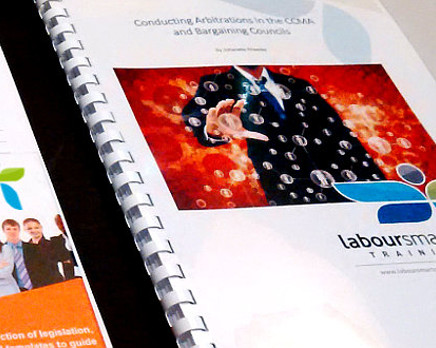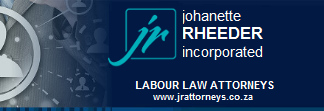- Course Name
- C18 - Union representation for shop stewards
- Course Description
- It is expected of a union representative to understand and conduct their duties and responsibilities within the context of the Union-Management relationship in an appropriate manner. This should be done in compliance with labour legislation, collective agreements and the Union Constitution This two-day practical training provides the delegates with an insight into the legal requirements of the LRA and skills to represent their members effectively in labour matter, e.g. disciplinary hearings and grievances.
- Duration
- 2 days
- Cost
- R4 950.00
Module 1 : Introduction
- The Constitution and freedom of association
- The protection in terms of labour law
Module 2 : Defining a Trade Union
- Purpose of a Trade Union
- Role players in a Trade Union
Module 3 : Representativeness
- The rights of Trade Unions
- Can I prevent employees to join?
- Defining representativeness
- Principle of majoritarianism v plurality
Module 4 : Organisational Rights
- Access to the workplace
- Deduction of levies
- Time off for office bearers
- Shop stewards
- Disclosure of information
Module 5 : The majority Trade Union
- Shop stewards - How many may the Union have?
- Full time shop stewards
- Time off for shop stewards and office bearers
- Misconduct of shop stewards
- The role and function of shop stewards
Module 6 : Role of the Chairperson
- Right to establish a threshold
- Collective bargaining and collective agreements
- Consultation and negotiation
- Destructive collective behaviour
- Collective agreements and recognition agreements
- The duty to bargain - does it exist?
- Disputes
Module 7 : How to prepare for Union meetings
- The process of entering the workplace from recruitment to majority Union
- Preparation and strategy for meetings
- The negotiation process
Module 8 : Conflict resolution
- Main sources of conflict
- Assumptions and perceptions
- Positive and negative characteristics of conflict
- The impact of negative conflict on the relationship with the Union
- Techniques on identifying and managing conflict
- Do’s and don’ts of conflict management
Module 9 : Discipline
- Collecting evidence – sources of evidence
- Consulting witnesses and drafting statements for witnesses
- Unwilling witnesses, hostile witnesses and intimidation of witnesses.
- Different types of evidence and how to collect this evidence: affidavits, statements, documentary evidence, real evidence, voice recordings, video recordings, photographs etc.
- Admissibility, relevance and weight of evidence.
- Bundles of evidence – preparation and exchange.
- Preparation for the hearing – do’s and don’ts
- Opening and closing statements and the burden of proof.
- Leading evidence and cross examination.
Module 10 : Grievances and grievance procedures
- How to deal with grievances and grievance procedures
Module 11 : Overview of the CCMA
2025 © LabourSmart Training (Pty) Ltd. All Rights Reserved. | Developed and Hosted by Resolve Technology Solutions (Pty) Ltd | SEO by NextG



